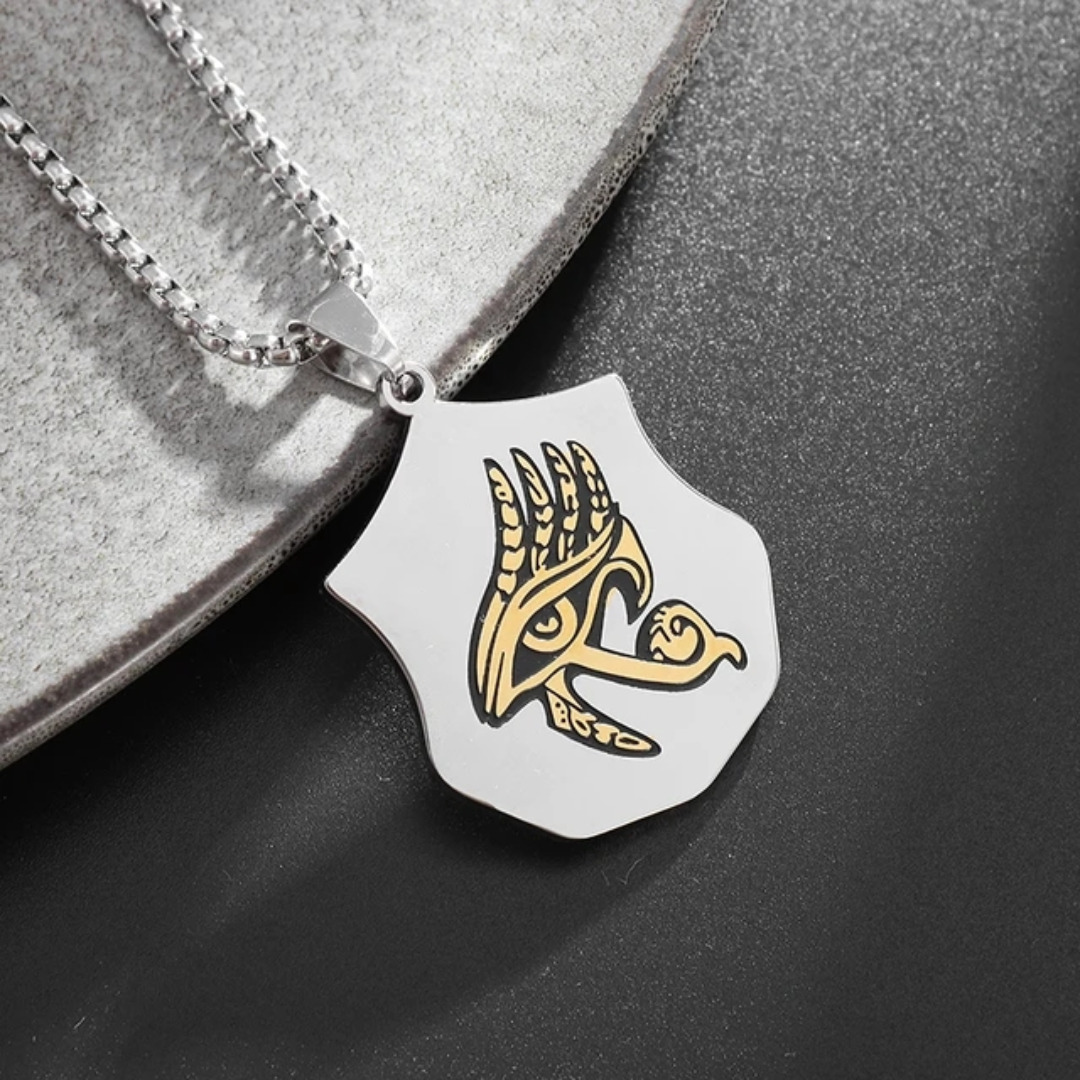1
/
of
2
Ancienne Égypte
Blason Necklace (Silver)
Blason Necklace (Silver)
Regular price
1.057,00 Kč
Regular price
Sale price
1.057,00 Kč
Unit price
/
per
Couldn't load pickup availability
A "coat of arms of Horus" Egyptian pendant. Son of Osiris and Isis, Horus is the ancient air god and is the eternal opponent of Set, god of chaos and murderer of Osiris.
- Sterling silver: a blazon made of a noble metal truly worthy of being a relic of Horus
- Resistant pendant: meshed, reinforced and elegant structure
- Very agreeable to wear
- Neat and precise details
- Chain length: 19.5" (50 cm) | Pendant size: 48x31 mm | Weight: ~26.6 gr
- FREE STANDARD SHIPPING
📏Refer to our MEASUREMENT GUIDE to see how the necklace will look according to its length.📏
If you are looking for a pendant, memory of the land of Horus, Osiris and Isis, this eye of Horus necklace "cristal of Horus" (silver) might be a smart choice! You can as well visit our complete collection of eye of Horus necklaces to discover all our models which carry the famous "Udjat symbol".
If you would prefer a scarab necklace or an ankh necklace, you can also have a look at all our Egyptian necklaces. If you want to find the perfect piece, you can finally discover the rings, bracelets and necklaces which constitute our Egyptian jewelry collection.

Who was the falcon Horus?
The eye that we find on this blason is the left eye of the god Horus according to Egyptian mythology. In the myth of Horus, the falcon-headed god sees his eye gouged out by the evil god Set (who wanted to prevent him from becoming Pharaoh of Egypt). Luckily, the god with the head of ibis, Thoth repairs this injustice by offering Horus a new magical eye more efficient than the previous one: "the eye of Horus" is born.
Horus is one of the oldest Egyptian deities. Its origins are lost in the mists of African prehistory. Like the other principal deities in the Egyptian pantheon, he is present in walls of Egyptian first religious monuments of 3500 BC.
The contemporary name "Horus" comes from the Greek name "Ὧρος" (pronounced "Hōros"), developed in the first millennium BC when the Egyptian and Greek cultures met. This name is itself derived from the ancient Egyptian "Hor", which etymologically means "the distant" or "the superior" (which refers to the nature of falcon god of Horus).
We find also Horus in the "Pyramid Texts" with the expression "Hor-em-iakhu" which mean "Horus in radiance". This expression refers to the belief that pharaohs of Egypt (represented by Horus) became gods in their turn, at the end of their mortal life.
Share




